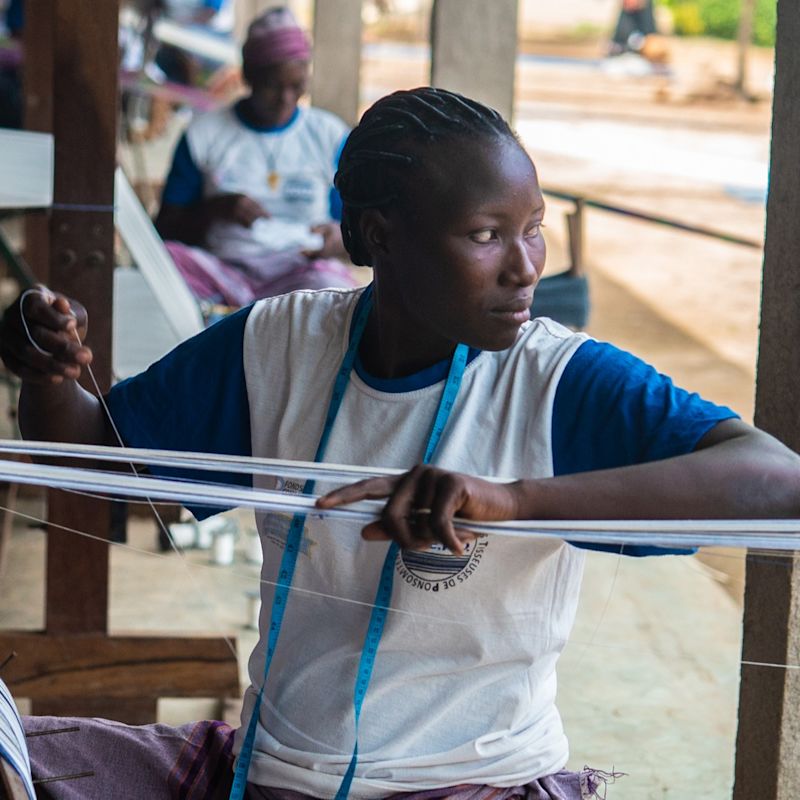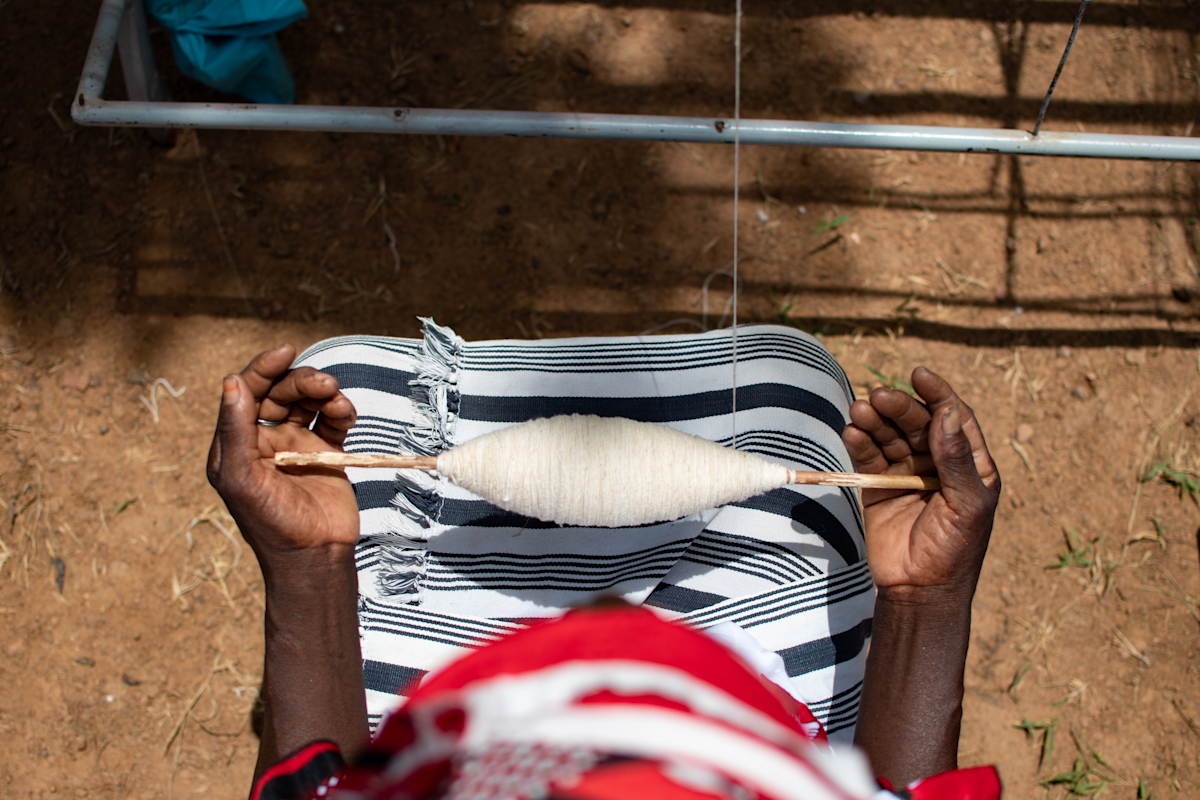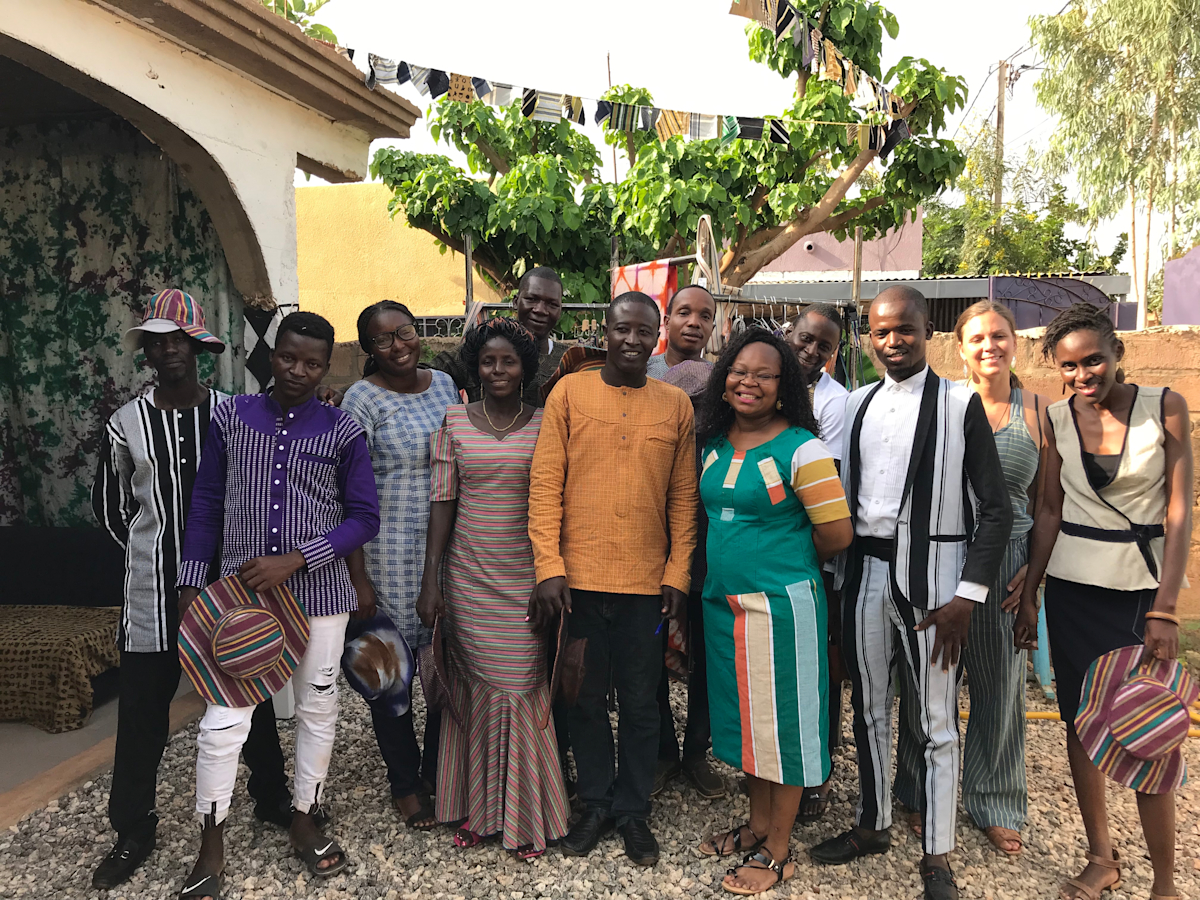“It all started with the fabrics.”
When Goodee’s founders Byron and Dexter Peart saw the striking Burkinabe and Malian cotton fabrics during their visit to Ethical Fashion Initiative’s weaving cooperative in Burkina Faso, they knew instantly that they had to bring the inspiring story behind these vibrant textiles to life. And so, the idea of the Bassi Market Tote was born — a practical, reusable everyday tote made from responsibly handcrafted material that everybody could use everywhere.
Byron and Dexter Peart with Ethical Fashion Initiative artisans in Burkina Faso.
It is impossible to tell the story of those gorgeous Dan Fani fabrics without mentioning Simone Cipriani and his team. A visionary with a passion for traditional artisanship, the Tuscan-born UN officer created the Ethical Fashion Initiative (EFI) with the support of both the United Nations and the World Trade Organization to connect skilled artisans in poverty-stricken areas across the world with international brands and give them access to the global market. By providing stable and dignified work as an alternative to the informal economy, the program aims to generate a positive long-term impact for the artisans and their communities — a mission that instantly resonated with Goodee’s founders.
Simone Cipriani, founder of Ethical Fashion Initiative in Burkina Faso.
Working hand in hand with local partners, the EFI team measures the social impact of each new project and ensures the traceability of the materials through the entire textile value chain. To produce the Bassi Market Tote fabrics in Burkina Faso, social enterprise CABES — short for “Commerce et Artisanat pour le Bien-Être Social”, meaning “trade and crafts for social well-being” — coordinated the work of 11 weavers in three different ateliers across the country.
Ten out of these 11 artisans are women, who, for the most part, were already well-versed in the intricate art of weaving before working with EFI. From dyeing the cotton threads in small batches to weaving the perfect stripes, they completed every single step of the process by hand to weave over 250 yards of fabric. While the most time-consuming part of weaving is setting up the loom and laying the warp, each stage has to be completed with the utmost care and attention to detail. In one day, an artisan can generally produce about 2 yards of beautiful Dan Fani fabric.
Cotton spinning process, all done by hand in Ouagadougou, Burkina Faso.
In rural areas like the village of Ponsomtenga, where most houses have no running water or electricity, joining a weaving association such as AFEPO, which produced two out of the four Bassi Market Tote fabrics, has given local weavers an opportunity to improve their living and working conditions. The artisans feel proud of their work, especially because they get a chance to continuously improve their skills. What’s more, they now have a safe space to gather and socialize.
“What I like most about my work is the team spirit that brings [us] together”, says 21-year-old Zalissa.
The orders brought by Goodee create very tangible, positive change for the weavers. For women especially, this work means that they can take control of their lives and care for themselves and their children, which also eventually benefits their entire community. Some artisans can even afford to hire labor to work in the fields in their place thanks to the income received. Joséphine, a 38-year-old widow and mother of three, used to collect wood and pebbles to sell and provide for her family. “Before it was difficult, but now it’s really okay. I earn money to send my kids to school, to provide food for them, and to take care of their health,” she proudly explains. “Everything is much better.”
CABES Team outside the weaving cooperative.
At INOVATEX, one of the three ateliers that worked on the Bassi Market Tote fabrics, it is said that young people who have joined no longer think about emigrating. They feel grateful for what the project has brought into their lives and have found hope for the future. “I am confident that I will reach my goals by staying committed to this work.” says 30-year-old Bihoun Ahmed. The fabrics do not just provide jobs — they provide pride, empowerment, and meaning.


































